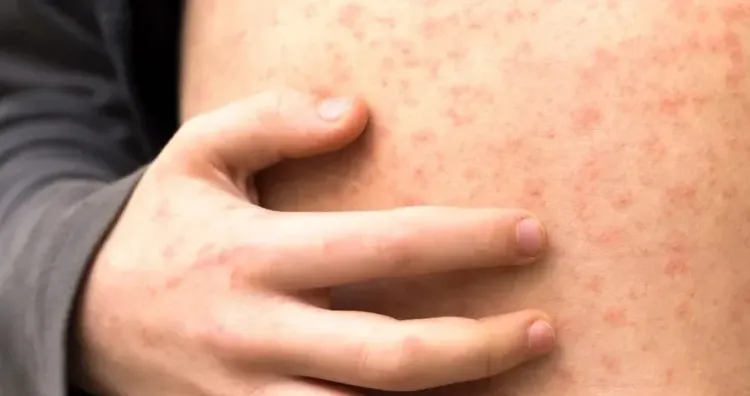Are Mongolia's Measles Cases Surpassing 5,000?

Synopsis
Key Takeaways
- Mongolia's measles cases surpass 5,000.
- 259 new infections reported recently.
- Urgent need for vaccinations highlighted by health authorities.
- Measles is highly contagious and can lead to severe complications.
- Children should receive two doses of the vaccine for effective immunity.
Ulan Bator, June 3 (NationPress) - The National Centre for Communicable Diseases (NCCD) in Mongolia reported an alarming rise in measles infections, confirming 259 new cases on Tuesday, which brings the total count to 5,075.
According to the NCCD, all recent confirmed cases have been among school-age children who have received only a single dose of the measles vaccine.
In a positive turn, 186 more individuals have recovered from the illness, resulting in a total of 3,333 recoveries.
In light of this situation, the NCCD urges parents to safeguard their children from this potentially serious disease by ensuring they receive two doses of the measles vaccine, as reported by Xinhua news agency.
The World Health Organisation states that measles is an extremely contagious viral infection that spreads through respiratory droplets and direct contact. The disease can be easily transmitted when an infected person coughs, sneezes, or even breathes.
Measles can affect anyone, but it predominantly impacts children.
The virus targets the respiratory system and can cause symptoms like a high fever, cough, runny nose, and a widespread rash.
Non-immune individuals, meaning those who are unvaccinated or those whose vaccinations did not lead to immunity, are at risk of infection. Unvaccinated children and pregnant women face the greatest risk of severe complications from measles.
Vaccination remains the most effective method for preventing measles infections and their spread. The vaccine is safe and strengthens the body's defense against the virus.
Before the introduction of the measles vaccine in 1963, major epidemics occurred every 2 to 3 years, leading to around 2.6 million deaths annually.
In 2023, approximately 107,500 individuals died from measles, primarily affecting children under five years old, despite the existence of safe and cost-effective vaccines.
This year, about 74% of children received both doses of the measles vaccine, while around 83% of children worldwide received one dose by their first birthday.
To ensure immunity and prevent outbreaks, it is crucial that children receive two doses of the vaccine, as not all individuals develop immunity from the first dose.










